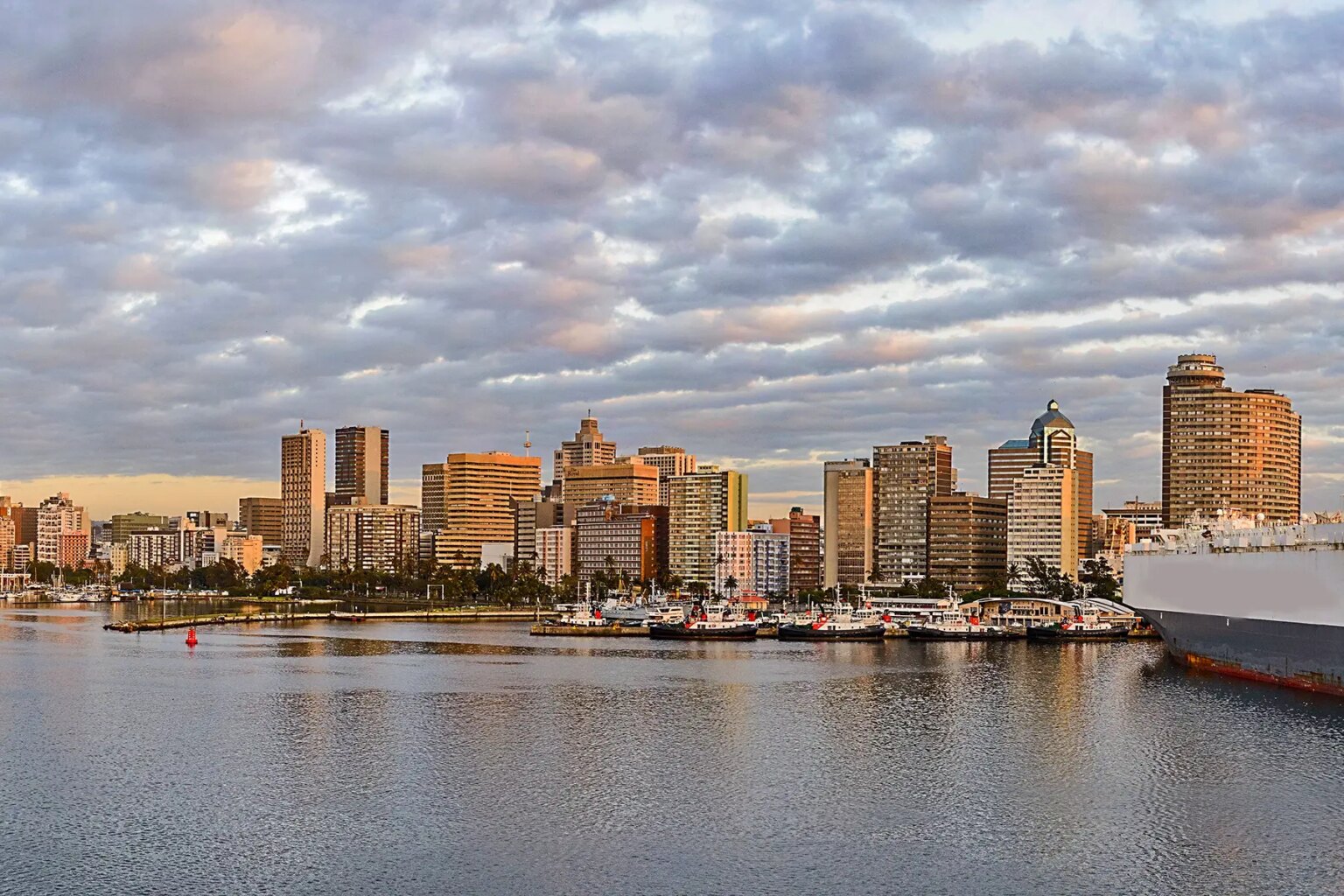If you’re moving to Africa’s southernmost country, getting your belongings to your new home is likely high on your to-do list. Helpfully, South Africa has several ports and airports, so you have plenty of options. Indeed, Johannesburg OR Tambo International Airport handles some of the highest passenger numbers in Africa, and the country is situated on a busy shipping route.
This guide will explain all of your options for removals to South Africa. However you decide to move your furniture, vehicles, and treasured possessions, we’ll outline which costs and timeframes you need to consider. With these tips, you’ll be ready to enjoy all of the fantastic culture and wildlife that South Africa has to offer. This guide covers:
The Relocator
Jetting off to Johannesburg? Setting up home in Stellenbosch? Wherever you're heading, take the stress out of your move to South Africa by letting The Relocator find the right international shipping options for you. Compare a number of trusted international movers and get a free quote in minutes. Wherever South African life takes you, get there with The Relocator.
Relocation to South Africa from abroad
Organizing your belongings, packing them up, and shipping them off to South Africa. Understandably, that can seem a little overwhelming. However, it doesn’t have to be. The first things to consider are which belongings you’re going to take with you, how much you can spend and how much time you have. This will help you to narrow down your options.
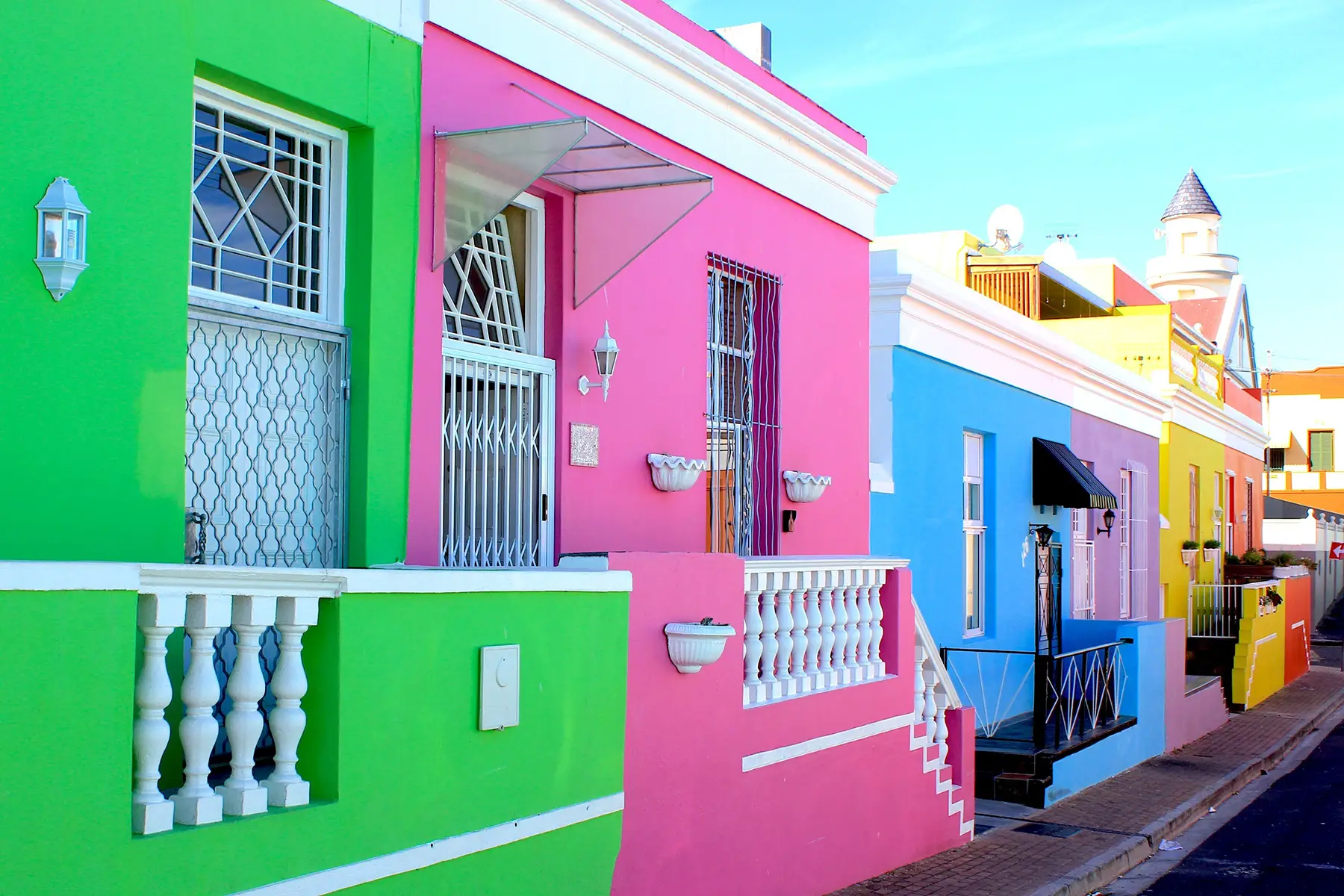
When thinking about cost, it’s a good idea to prioritize. Different transport methods offer various benefits, and you might end up spending more if you want to be less hands-on. In addition, having a longer deadline can save you money, as you can send your belongings via slower, cheaper transport.
If you have a little more money to spare, an international removal company can save you time and hassle. They’re ideal if you’re looking for someone to handle the entire move for you, as they are experienced in handling unexpected issues and customs. However, this will add to the price of your move. To find the best option, it’s worth checking online comparison websites such as:
This guide will explain many different ways to move your household to South Africa and help you decide which one suits you. Also, don’t forget to visit our directory for listings of relocation companies operating in South Africa.
Moving to South Africa with air freight
South Africa’s biggest international airport is OR Tambo International Airport, located near Johannesburg. Most international flights fly to this airport, so this will likely be where your belongings end up. Other international airports in South Africa include Cape Town International Airport and King Shaka International Airport, Durban.
Air freight is only a small proportion of South Africa’s freight market. However, around 86% of South African air freight is handled by OR Tambo International Airport. Indeed, even if you are moving to a neighboring country, it’s likely that your freight will still use this airport.
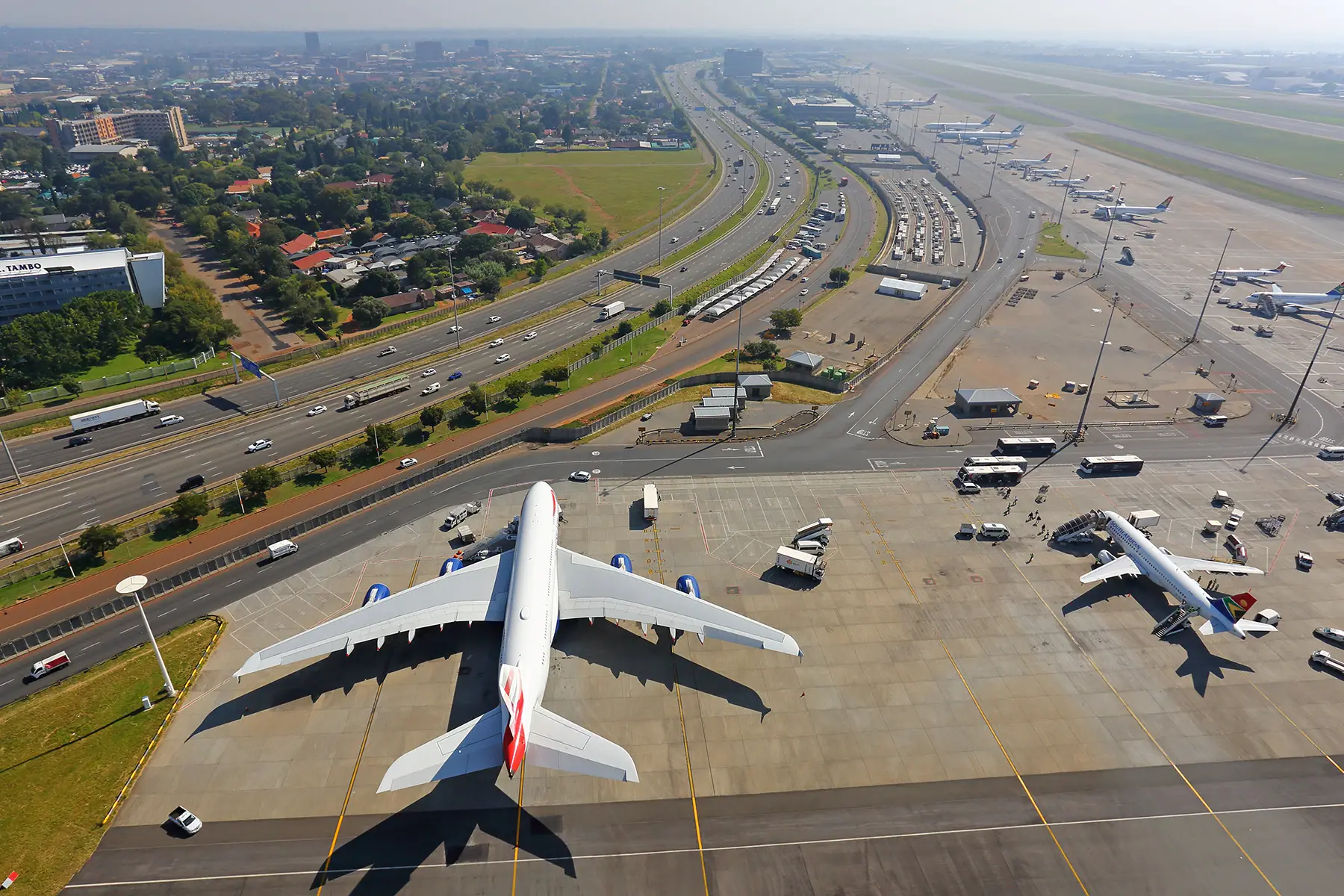
Who should use air freight?
If you have items that you need as soon as possible, air shipping is a good option, as it’s the fastest transport method. The price is determined by weight, so it’s excellent for transporting small, lightweight, urgent objects. As it’s most likely that your belongings will arrive in Johannesburg, it’s most convenient if you live nearby.
Air freight is, however, not as environmentally friendly as some other methods of transport. So if you’re planning to live sustainably in South Africa, you may wish to consider other options.
How air freight works
With all removal methods when moving to South Africa, you first need to assess which belongings you will ship. Once you know which belongings you will send by air freight, you can approach different companies to determine how much they charge for a shipment of your specified weight. If you choose a door-to-door service, representatives will survey your belongings in person or via video link to give you a more accurate quote.
Remember that you will have to fill in paperwork when shipping your belongings abroad. Your delivery or removal service should be able to give you detailed information about what forms are required and assist you where necessary. When your items arrive in South Africa, you will either pick them up from the airport or your removal company will bring them to your new home and unpack them.
Air freight: transit times
Speed is the biggest bonus of air freight. Your belongings should arrive within a week, so it’s perfect for urgent items. If you have a few things that you can carry and fly to South Africa, you could also pay for extra baggage and pick them up from baggage reclaim. Don’t forget that you might need to declare items when crossing the South African border.
Air freight rates
On the other hand, air freight can be costly in comparison to other methods. Most companies insist that you pay a minimum shipment charge of around US$150. In addition, your belongings will be charged by weight – prices begin at about US$1.50 per kilo and can reach US$8 per kilo during times of high demand.
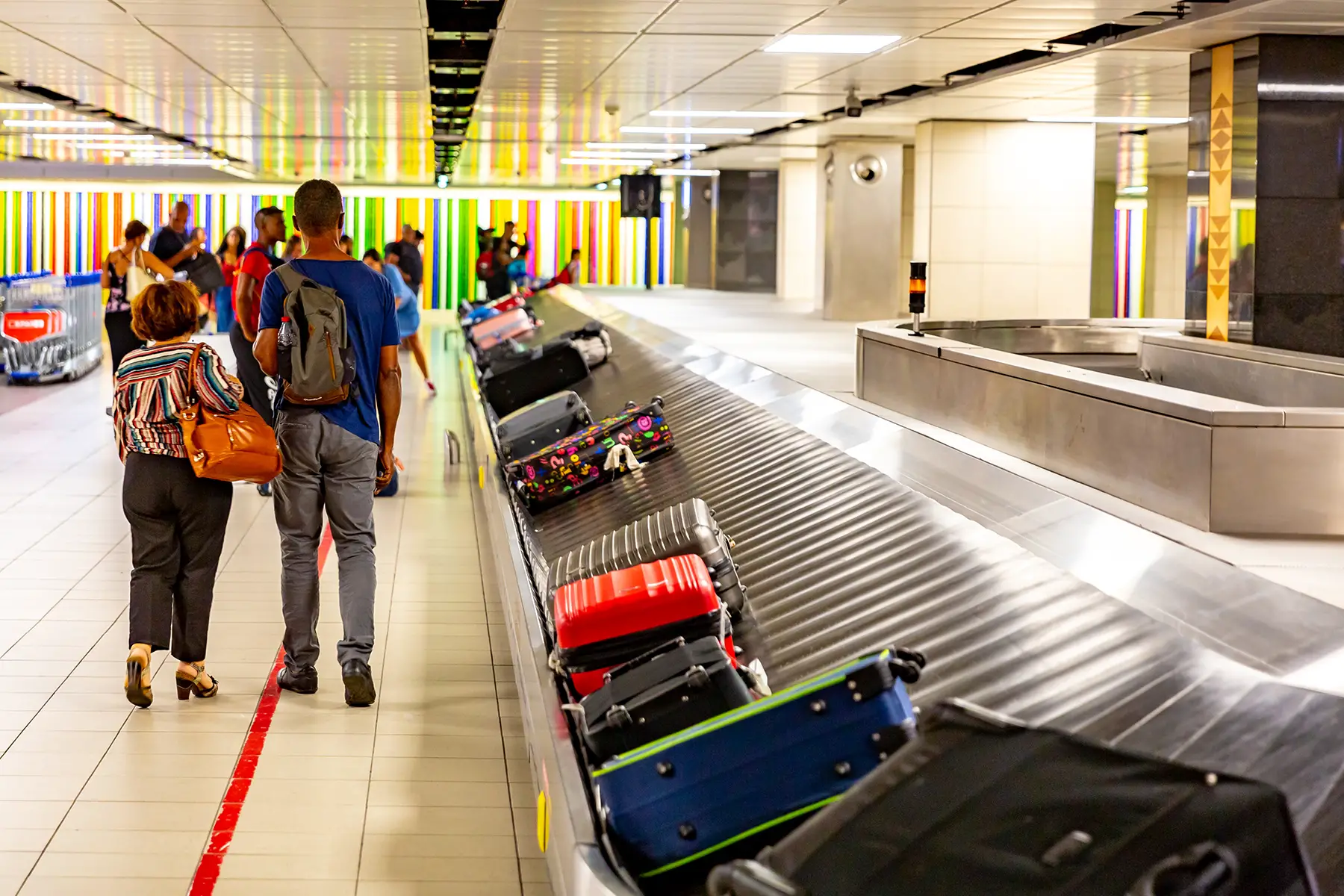
Packing options for air freight
When you move to South Africa, you might be able to pack your own items. However, most moving companies only insure items that they have packed themselves.
If you want to make your move slightly more eco-friendly, pack your items in reusable cases or boxes. Many removal companies are beginning to use sustainable packaging, so it’s worth asking what options are available.
Finding an air freight company
When you have an idea of the size and weight of your shipment, you can decide whether to organize your own shipping to South Africa or use a removal company. If you go down the DIY route, you will need a service to ship your belongings by air – you can compare different options on platforms such as Parcel ABC.
Remember that your first quote won’t necessarily account for additional costs such as insurance and packing. Contact the companies directly to clarify a more accurate price with these costs included.
Relocation to South Africa with sea freight
If you have a little more time and have a large shipment, you can save money by shipping your belongings to South Africa. South Africa’s largest container port is the Port of Durban, also sub-Sarahan Africa’s largest. Other ports in South Africa include:
- Port of Cape Town
- Port of East London
- Port of Gqeberha (formerly Port Elizabeth)
- Port of Ngqura
- Port of Richards Bay
Who should use shipping companies?
Sea freight is usually the slowest way of carrying out removals to South Africa. However, it’s an excellent way to keep costs down, and it’s more environmentally friendly than other shipping methods. So if you are looking for the most eco-friendly option and don’t mind waiting a little while for your items to arrive, it’s a good choice.
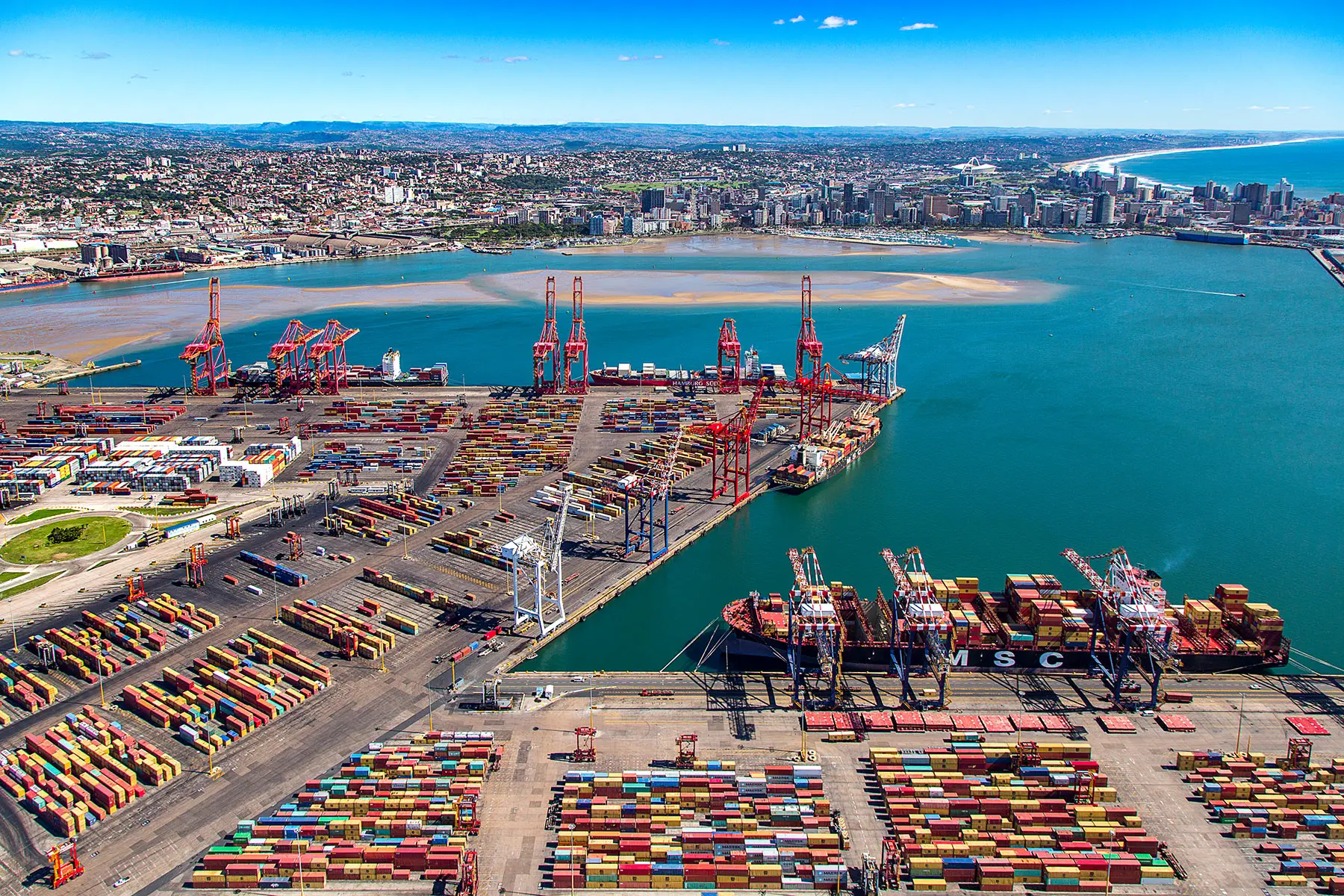
Container ships: how the process works
Once you know the size of your shipment, you can decide on how to ship your items. Most sea freight companies calculate the price of shipping based on size rather than weight.
There are three main options for the type of container that your shipment will travel in:
- Full container load (FCL), 20-foot container – fits the contents of a two- or three-bedroom house
- FCL, 40-foot container – for a larger house of four or five bedrooms
- Less than a container load (LCL) – ship your belongings on pallets in a shared container
Shipping LCL is generally cheaper than sending a full container load, but it often takes longer. This is because you will have to wait for other shipments to fill the rest of the space inside.
Freight shipping transit times
Shipping times depend primarily on where you are shipping from but can also be affected by weather and demand. For example, from a neighboring country, your shipment might take just over a week, but here are some estimated shipping times to South Africa:
- Angola: around 13 days
- India: 13–52 days
- United Kingdom: 26–37 days
- United States: 32–59 days
These times do not account for any journeys on either side of the port, and you should also consider the time needed for customs and unloading. Most companies suggest booking sea freight four to six weeks in advance of your move.
Shipping costs
As shipping is charged by size rather than weight, it’s a much cheaper option than air freight for heavy items such as furniture. The cost of transporting your goods by sea depends on which route they take and the levels of demand. Keep in touch with your shipping company to stay on top of any price changes. The cost per cubic meter can vary greatly: from US$25–140.
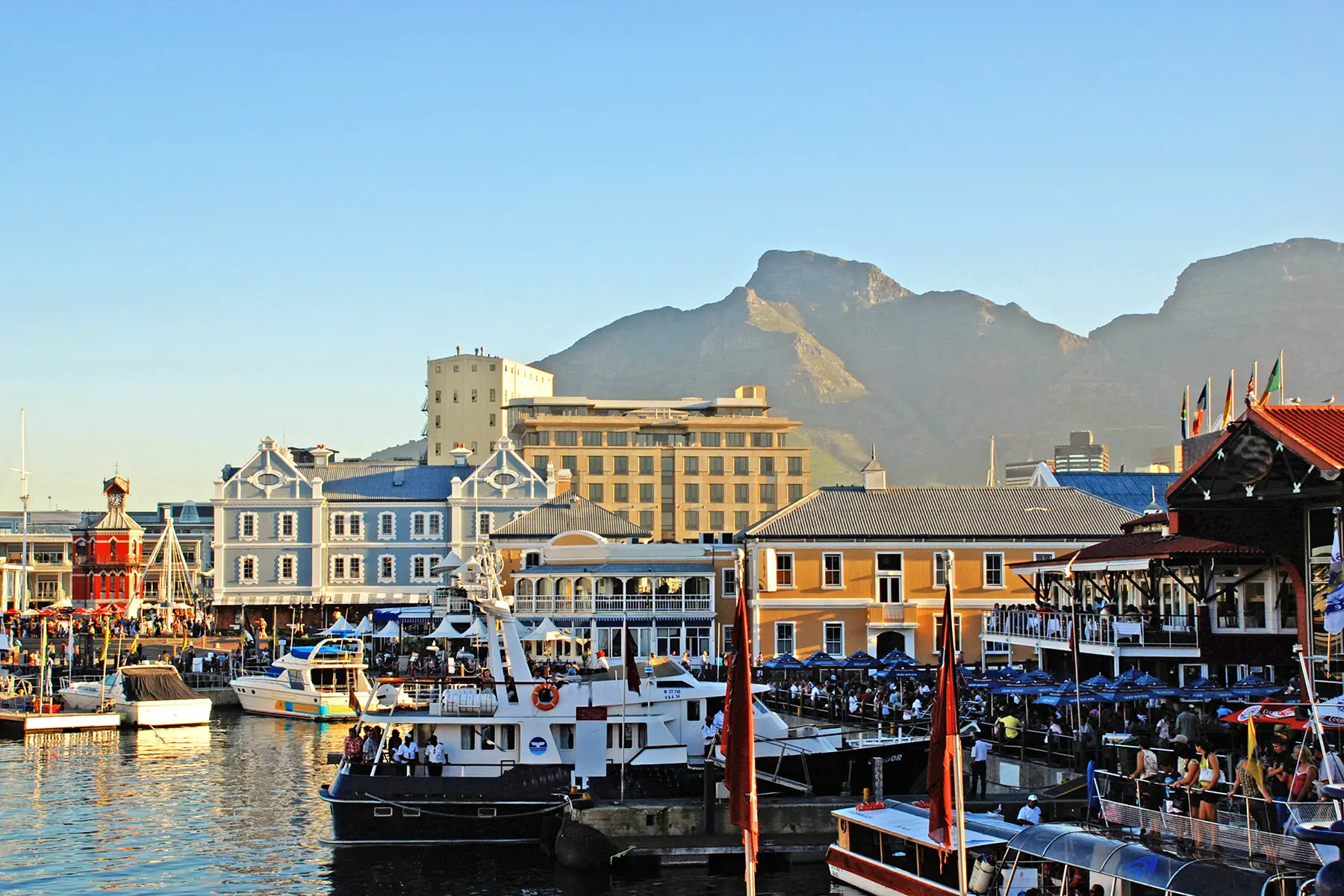
Packing for sea freight
If you opt to ship your belongings by sea, you might have fewer options for packing. Your items need to be protected from moisture and bumpy sea conditions. As your move might involve several transfers, you should make sure it is well-protected from rough handling.
Just as with air freight, your removal company or delivery service might insist on packing your items themselves. Contact your removal company if you’re keen to use sustainable packaging – they might be able to provide some options.
Finding a sea freight company
Once you know the volume of your belongings and whether you need to ship FCL or LCL, you can start sourcing quotes from websites. You could begin by filling out quote forms on individual companies’ websites. However, there are plenty of comparison platforms that can help you find the most suitable company. These include:
In addition, our directory is full of relocation companies that ship to South Africa.
Hiring an international moving company
You can ease the stress of an international move by hiring a global relocation company. As they handle all of the packing and shipping, this can save you a lot of stress. Furthermore, a reputable removals company will have years of experience handling shipments, dealing with customs, and filling out inventories.
If you choose to work with an international relocation service, it’s worth getting in touch to find out which services they provide. When you contact them, they will likely give you a clearer idea of timing and costs. For example, removals companies that work in South Africa include:
One way to make your move even more manageable is to compare your options on a comparison site such as:
The right moving company can take the stress out of your move by handling all of the logistics. Make sure you check what’s included in the price to avoid any surprises.
How to choose an international relocation company
There are a lot of removal companies out there, so you might find it challenging to choose the right relocation company for your move. First, make sure that any company you consider is a member of industry organizations such as the International Federation of Freight Forwarders Associations or the International Air Transport Association.
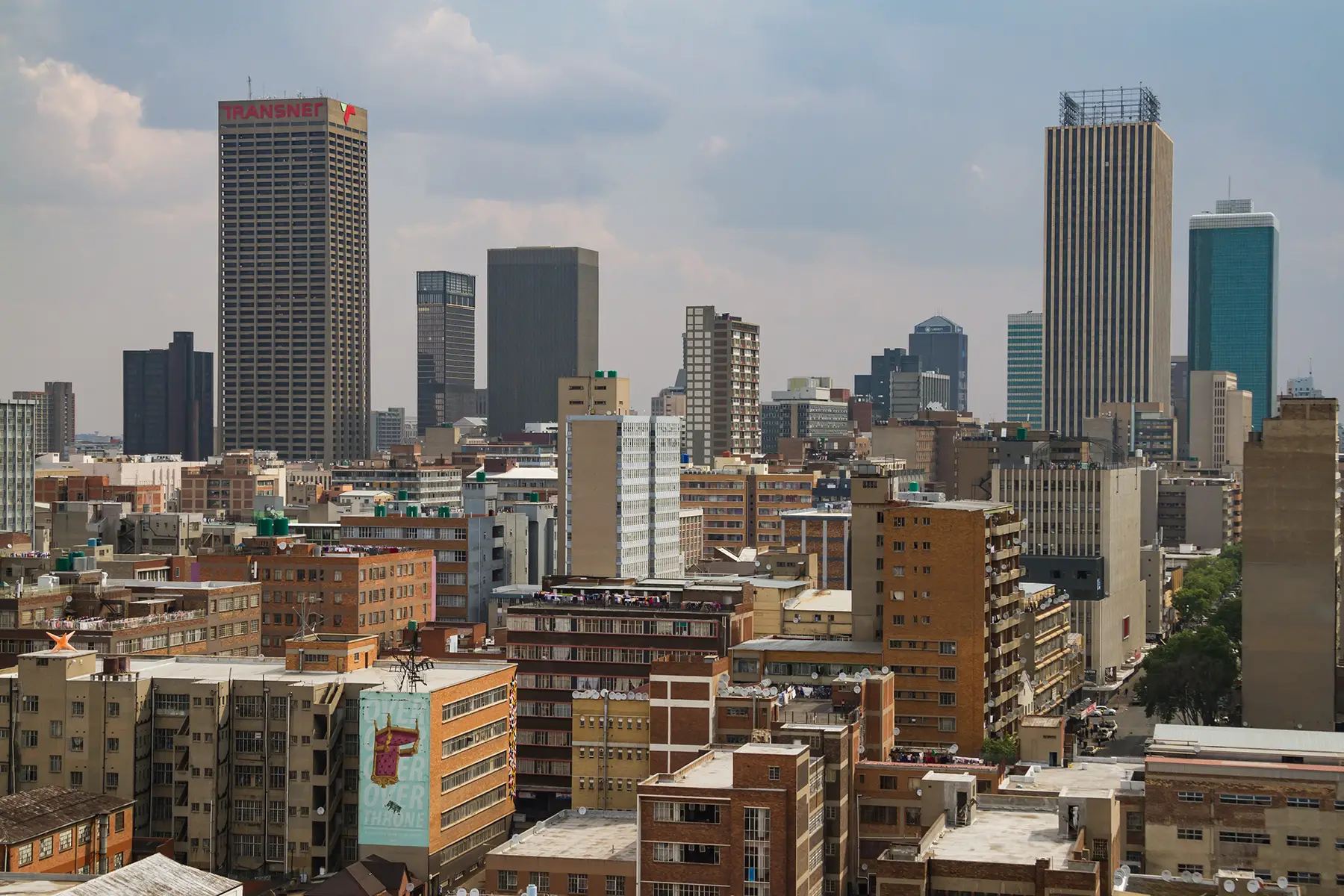
A good shipping company should be experienced, knowledgeable, and transparent. If you know someone who’s already moved to South Africa, it’s worth asking whether they have any recommendations. Otherwise, online reviews can give you an idea of reputable companies and pain points. Finally, make sure you clarify with your chosen company what the process involves, any necessary paperwork, and what will happen if something goes wrong.
DIY relocation versus using a relocation company
If your budget is tight, one way to save money is by organizing the entire move yourself. This is worth considering if you only have a few essential items to bring to South Africa. However, if you have a household full of furniture to move, it’s probably easier to bring in professionals.
If you choose to handle the entire move yourself, make sure you have a clear overview of each step. Bear in mind that your move might involve multiple methods of transport, large amounts of administration, and lots of heavy lifting. Besides saving money, it’s worth considering the time and effort you’ll need to put in.
Relocating with pets and vehicles
Are you moving to South Africa with a pet or a vehicle? Read on to find out about procedures and necessary documents.
Moving to South Africa with a pet
There are several necessary forms, permits, certificates, and tests to prepare when shipping a household animal to South Africa. For example, first, you will need to complete an application to import your pet. Then, you will need to pay around R320 for a veterinary import permit. You can find a full list of instructions on the South African Government’s website.

In some cases, your pet might need to go into quarantine. In addition, all pets imported to South Africa should be microchipped, vaccinated against rabies, and, in some cases, tested for certain diseases. Check with the Department for Agriculture, Land Reform, and Rural Development to find out which tests and vaccinations apply to your pets.
Importing a vehicle to South Africa
If you want to drive in South Africa, but you don’t want to buy a new car, you can import your own. People with permanent residence in South Africa may bring a vehicle that is registered in their name into the country. This requires:
- A letter of authority from the National Regulator for Compulsory Specifications
- An application form
- A copy of your permanent residence certificate
- Passport copy
- A copy of your foreign motor vehicle registration certificate
You can read more about the procedure in detail on the South African Government’s website. In addition, permanent residents may import one vehicle free of duty and exempt from VAT.
Customs and importing goods to South Africa
When importing your household items to South Africa, you might deal with the International Trade Administration Commission (ITAC) or the South African Revenue Service (SARS).
If you are moving to South Africa, your household items are exempt from duties and VAT. However, you may not sell your items within six months of bringing them into the country. When relocating with an international removals company, be sure to speak to them about any restrictions there may be on your belongings and talk through your options.
There are restrictions on certain items you may wish to bring into South Africa. As well as banned items such as narcotics and unlicensed weapons, you must have permits for animals and excess currency (over R25,000). There are also rules banning the import of certain animal and natural products, such as honey, beeswax, bulbs, and seeds. Be sure to do your homework ahead of your move to avoid any headaches at customs.
You can read a complete list of restrictions on the SARS website.
Useful resources
- SARS – South African Revenue Service. Explains customs regulations and taxes in South Africa.
- South African Government – Provides information on import procedures.
- ITAC – International Trade Administration Commission of South Africa. Provides forms for import and information on tariffs.
